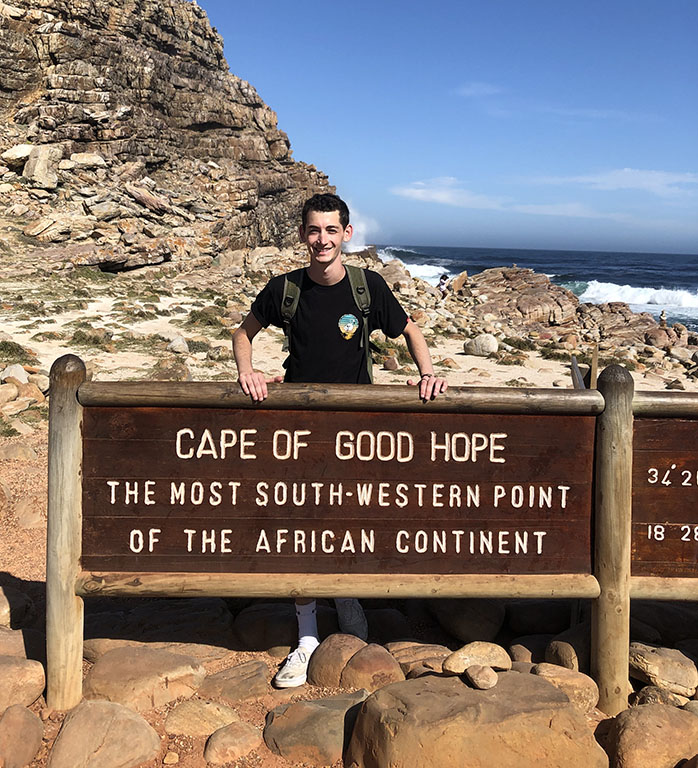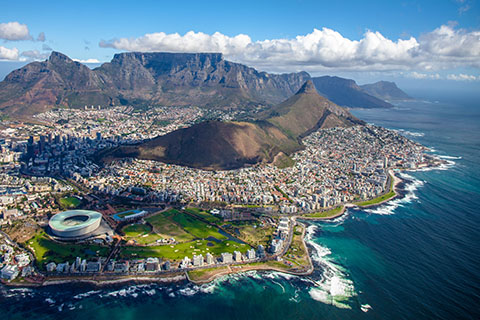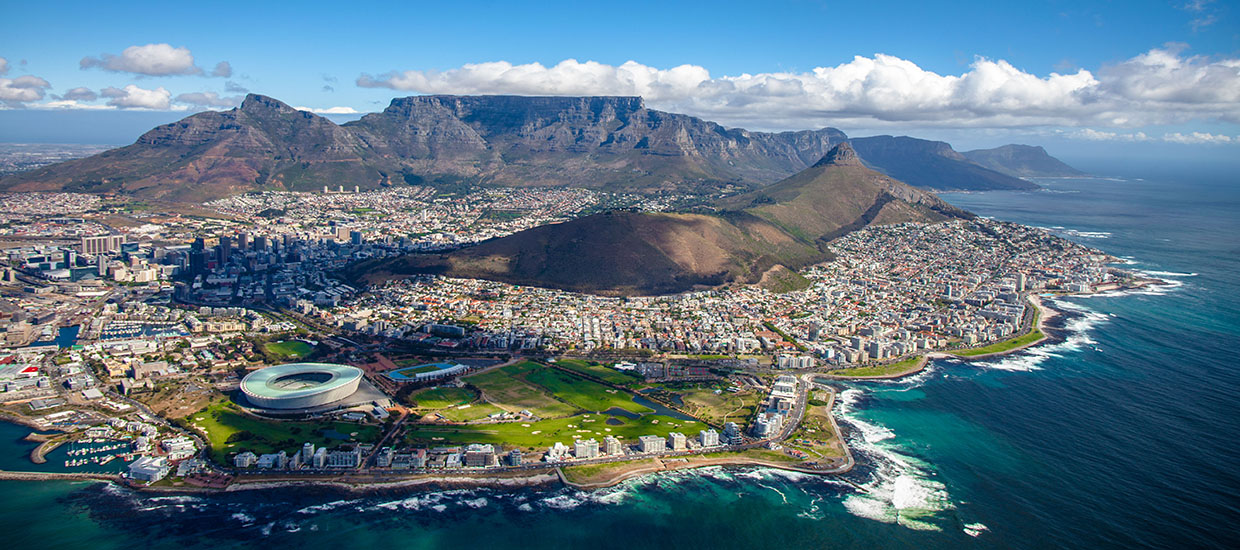By Alec Musinsky
It was the end of January when I boarded a plane and set off on an adventure to Cape Town, South Africa, where I would live and study for the next five months. Despite my knowledge of COVID-19 plaguing China, there was not one piece of me that could have predicted what would ensue. In my first month, aside from adjusting to my new home, everything felt normal. I was attending class at the University of Cape Town (UCT), exploring the city, eating at restaurants, and interacting with countless people. However, by the end of February through mid-March, a significant shift occurred. Although our daily lives remained as we knew it, talk about the virus began to dominate most of our conversations. We were all curious about each other’s opinions because we all felt lost and clueless. Furthermore, as each day went by there was a looming threat in the back of the minds of all the study abroad students that we would receive an email forcing us to return home. It almost felt like we were in a game of survival; each day, as the number of cases in South Africa would rise, a different university would mandate the return of their students.
We all lived through these unusual and confusing times for several days until late in the evening of March 15th. People crowded around televisions to listen to the live broadcast of President Cyril Ramaphosa as he addressed the nation. In his announcement, he declared a national state of disaster, a statement that resulted in utter chaos. My inbox became flooded with emails informing me that my study abroad program had been cancelled, autumn break at UCT would start a week early, and I had to leave the country as soon as possible. Student responses to the announcement couldn’t be more different. The full-time UCT students immediately erupted with cheers with some even partying while the study abroad students panicked and some cried. With all international flights to at-risk countries – which included the United States – scheduled to be grounded the following Sunday, finding a flight that didn’t layover in Europe and with the least amount of travel time proved to be an extremely stressful task. However, all of us managed to find those last-minute flights, and I was able to enjoy my last few days before I boarded a plane headed home on March 19th.
Despite what may appear to someone as the negative aspect of my brief study abroad experience in Cape Town, I prefer to view it in a positive light. Living through this experience taught me many things. One of the most interesting take aways from this experience has been the opportunity to live through two different government responses to COVID-19. As I mentioned before, President Ramaphosa of South Africa acted quickly by declaring a "national state of disaster" just ten days after the first confirmed case of the virus in South Africa and four days after the World Health Organization declared it a pandemic. Additionally, at the time of his announcement, there were only 61 confirmed cases in the country. In the United States, we saw a very different response from the federal government, which prioritized maintaining the status quo by downplaying the threat of the virus. The first confirmed case of the virus in the US occurred in late January; however, the declaration of a national emergency didn't occur until March 13th. Leading up to this, each state was responsible for developing its own responses to the crisis, while President Trump tried to reassure the American public that the virus was under control and would be over with quickly.
Many public health responses could be compared between the two countries, however, the comparison given sheds light on how influential cultural values are on public health. South Africa’s population is highly immunocompromised, with 20.4% of people living with HIV/AIDS. Additionally, within the townships, there is overcrowding and limited access to health care and sanitation. These facts allowed for a very science-based decision to be made to protect the population despite putting the struggling economy at even greater risk. On the other hand, in the United States the president’s response was driven by capitalist values, which favored the economy over the public’s health and safety. The absence of a unified, federal response to the crisis in the US resulted in varying efforts in which states “closed” or enforced stay-at-home orders at different times and to different degrees. Additionally, many Americans shared the federal government’s view that the economy should not be shut down due to the financial burden it would place on their families, which led to some states remaining “open” several weeks into the pandemic.
Not only has the response to the COVID-19 in the United States become a significant responsibility of the states, but it has also become a responsibility for local leaders. As a resident of Florida, I have found it very difficult to keep track of what is even happening across the state, but what has become clear is the exponential increase of cases in Florida. In June, Florida became the new epicenter for the virus after prematurely “re-opening.”. I will admit that I have been leaving the house for what would be non-essential reasons, however, I continue to do my best to prevent the spread of the virus. Unfortunately, I cannot say the same for other Floridians. I've gone to grocery stores, and people are no longer wearing masks. I've gone to a restaurant that did not limit the number of patrons, maintain social distancing, nor require that patrons wear masks, so I quickly left. Socially, I have also felt an odd sense of judgment from strangers when I take certain safety precautions, such as wearing a mask on a busy sidewalk or wrapping a gas pump in paper towels before using it.
Despite the lack of knowledge on what our future holds, it is crucial that we act on what we do know, and that is that in the absence of a vaccine wearing masks in public and social distancing are the only safety measures that can help reduce the spread of the virus. This pandemic is a perfect example of how the actions of the individual have a global effect because, in many ways, every person is connected via a global human chain.







